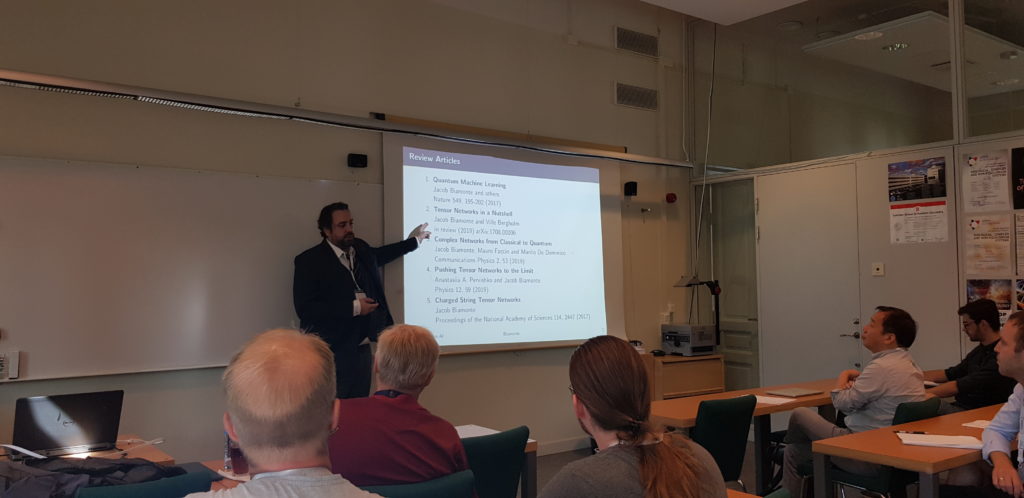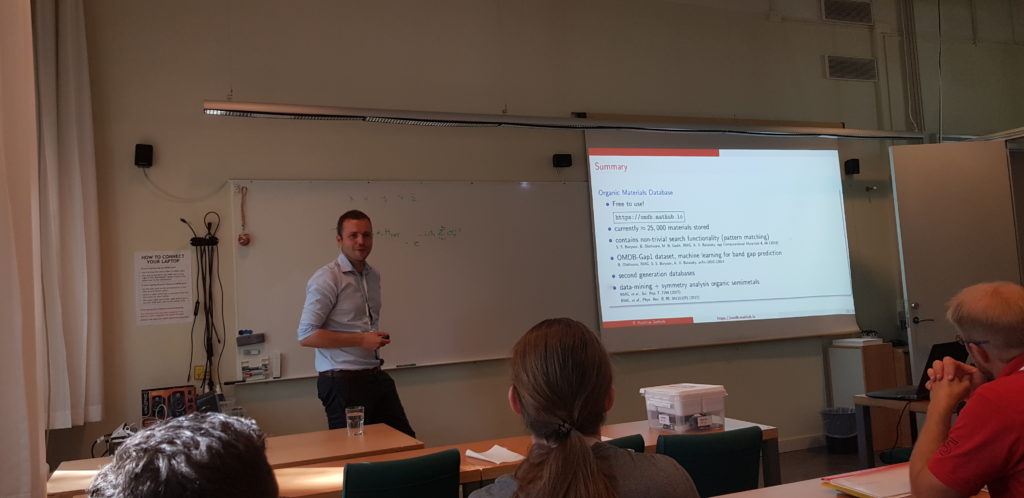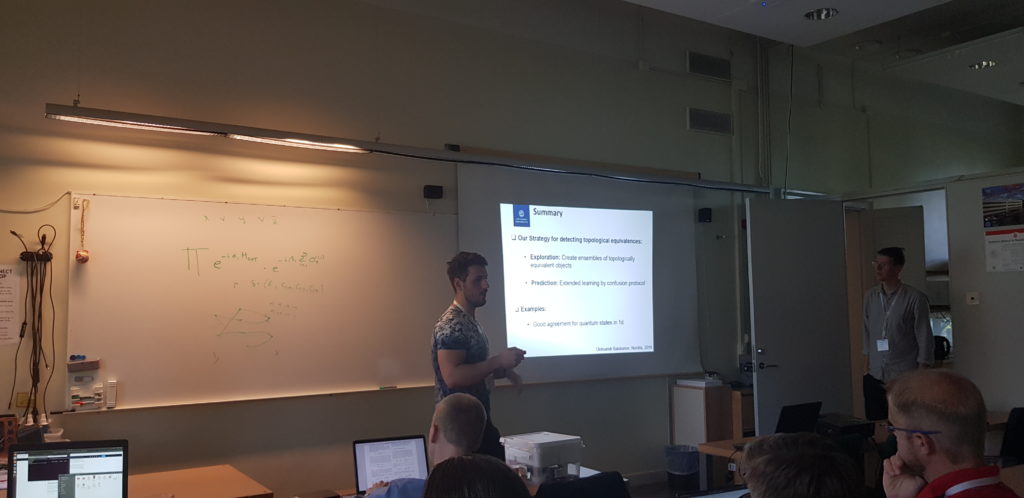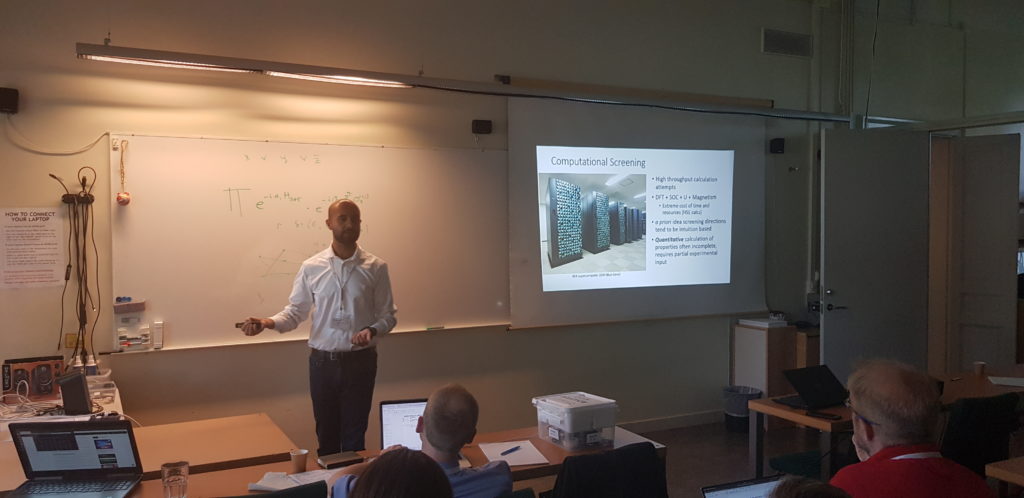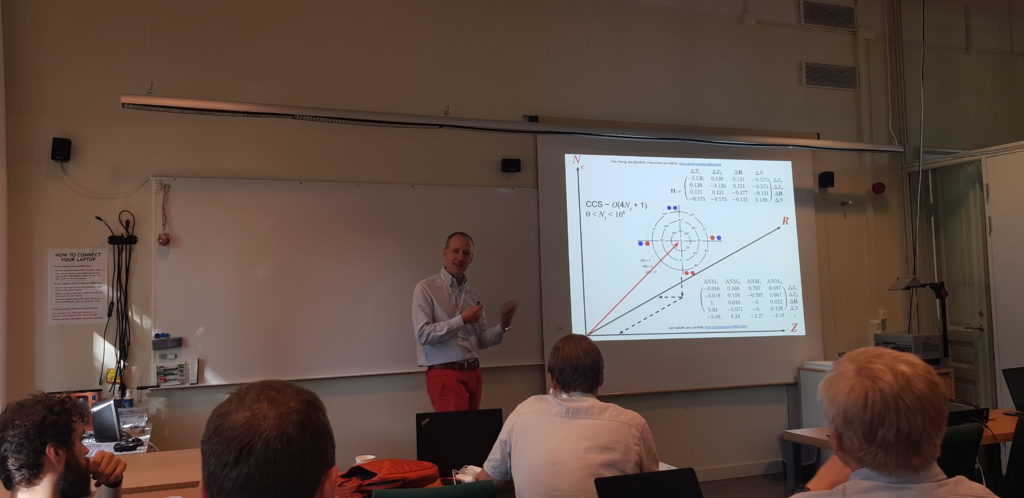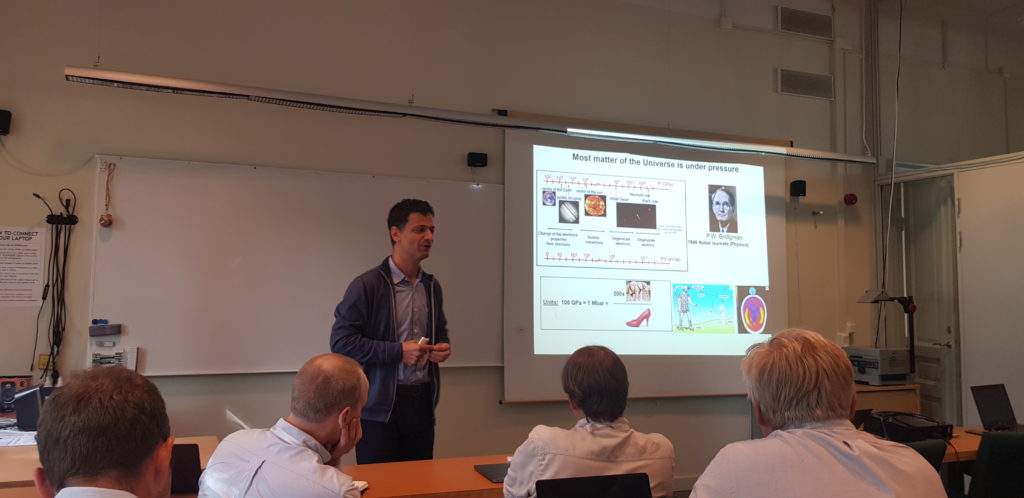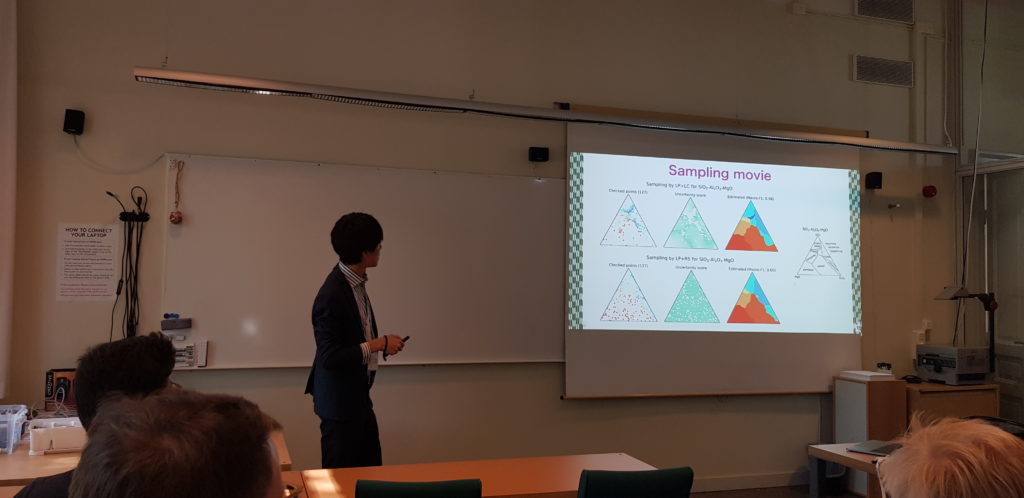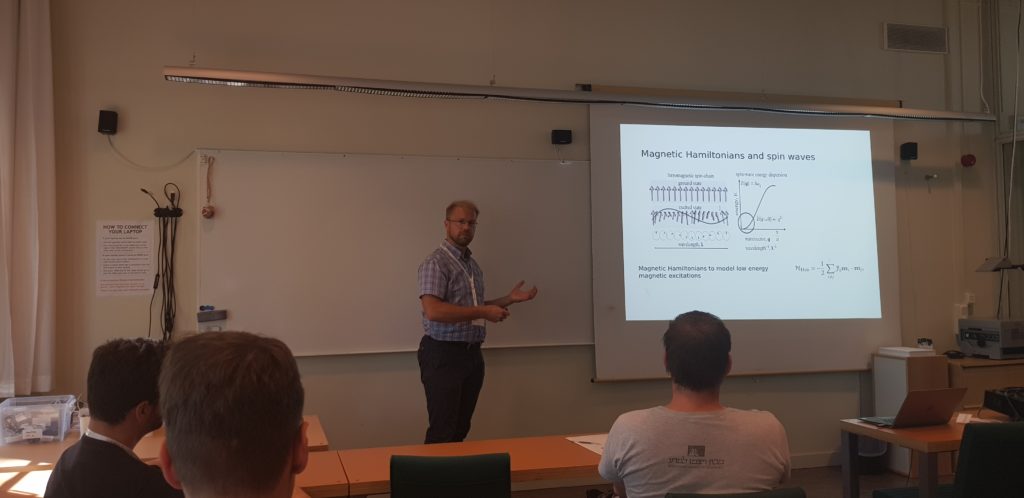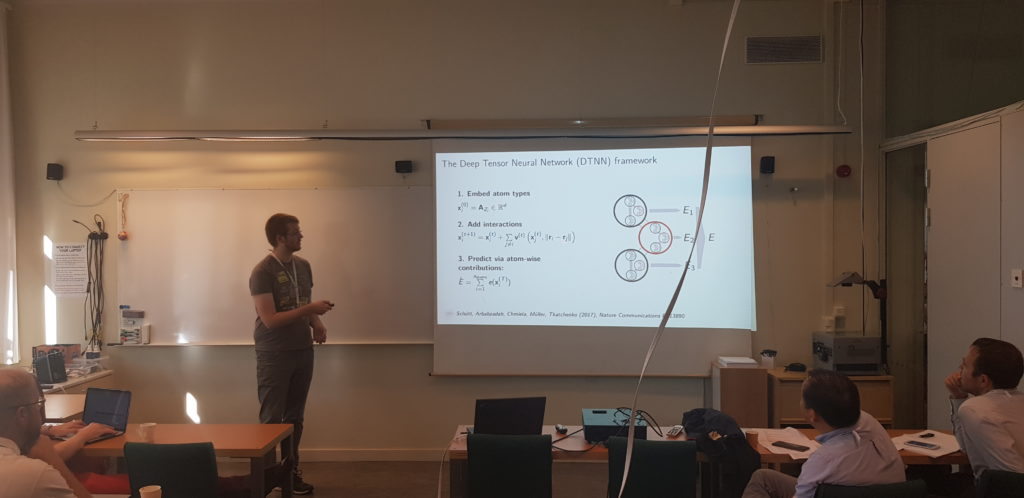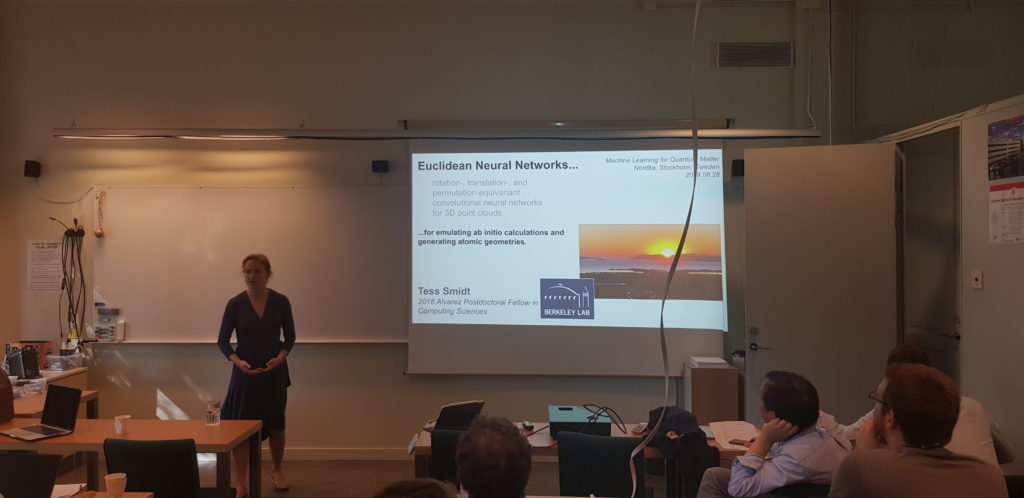Venue: Nordita, Stockholm
Date: 26-28 August 2019
Organizers:
Alexander V. Balatsky
Nordita, KTH Royal Institute of Technology, Stockholm University
University of Connecticut
Jens H. Bardarson
KTH – Royal Institute of Technology
R. Matthias Geilhufe
Nordita, KTH Royal Institute of Technology, Stockholm University
Bart Olsthoorn
Nordita, KTH Royal Institute of Technology, Stockholm University
To assist the community in developing a coherent and consistent view we hold a three day focus workshop at Nordita titled “Machine Learning for Quantum Matter”. We envision a set of leading experts talks combined with the talks of younger participants to present a broad picture of the activities and best ideas on the use of ML methods in quantum matter.
Scope: Machine learning applications in the field of quantum matter, including quantum materials and the many-body problem.
- State-of-the art and method development
- Scientific data and materials databases
- Quantum materials design
- Machine Learning applied to quantum phases and phase transitions
- Machine learning applied to many-body quantum physics
- Tensor network states
- Quantum machine learning
- Machine learning algorithms for quantum computers
Motivation: Machine learning has entered the field of quantum matter with applications covering quantum materials and the many-body problem. For example, interpretable and computationally-efficient machine learning models are able to capture the structure-property relationship in materials science. In the case of supervised learning, large datasets of ab initio calculations provide the necessary training examples. The trained models facilitate high-throughput screening of materials by reducing the search space. Additionally, the models enable dynamic simulation on longer timescales than traditionally feasible. Unsupervised clustering approaches using structural similarity metrics allow for a new way of exploring the large chemical space. In case of the many-body problem, machine learning architectures provide versatile wavefunctions that lead to accurate results and prove to be more flexible than traditional methods. Conversely, methods in physics have also influenced the development of machine learning methods in the case of tensor networks. The workshop will feature talks by leading experts combined with the talks of younger participants to present a broad picture of the activities and best ideas on the use of ML methods in quantum matter.
Schedule
The workshop schedule may be accessed here.
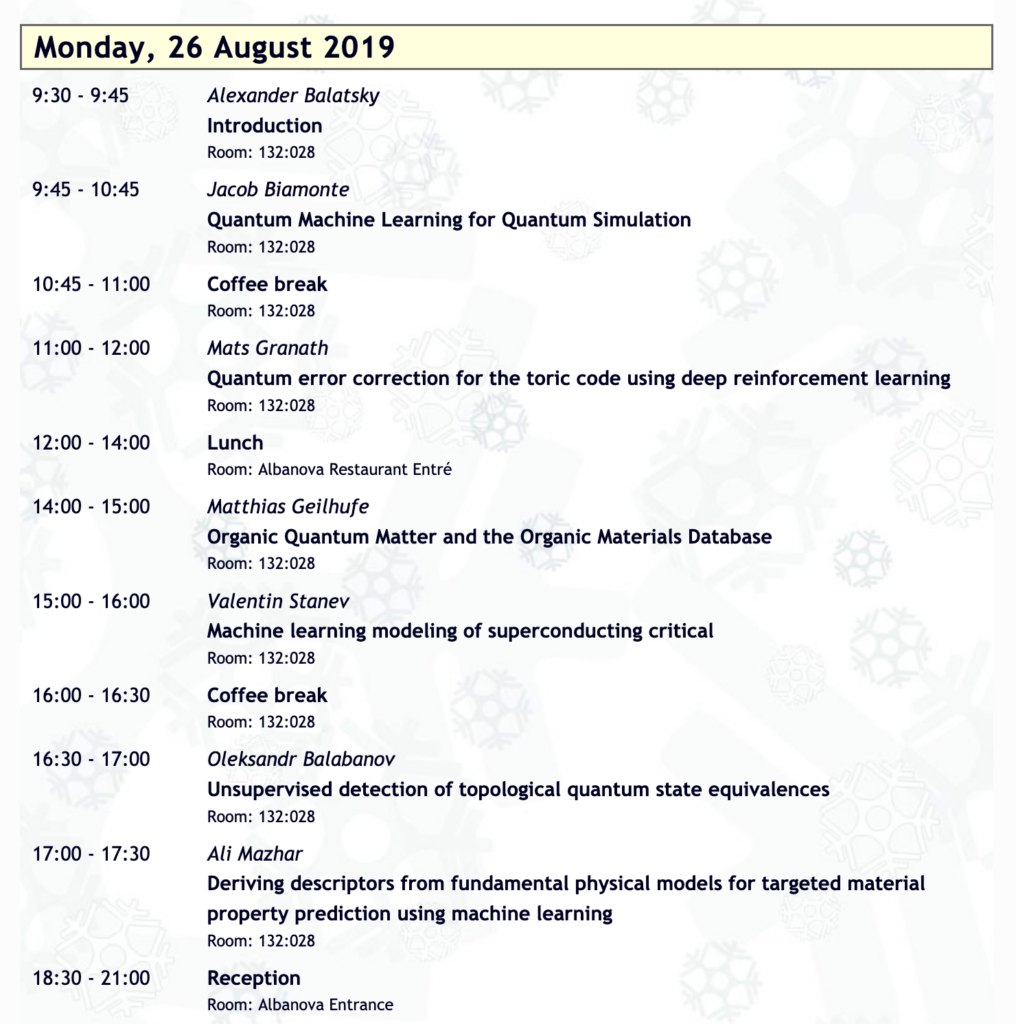
Day 1 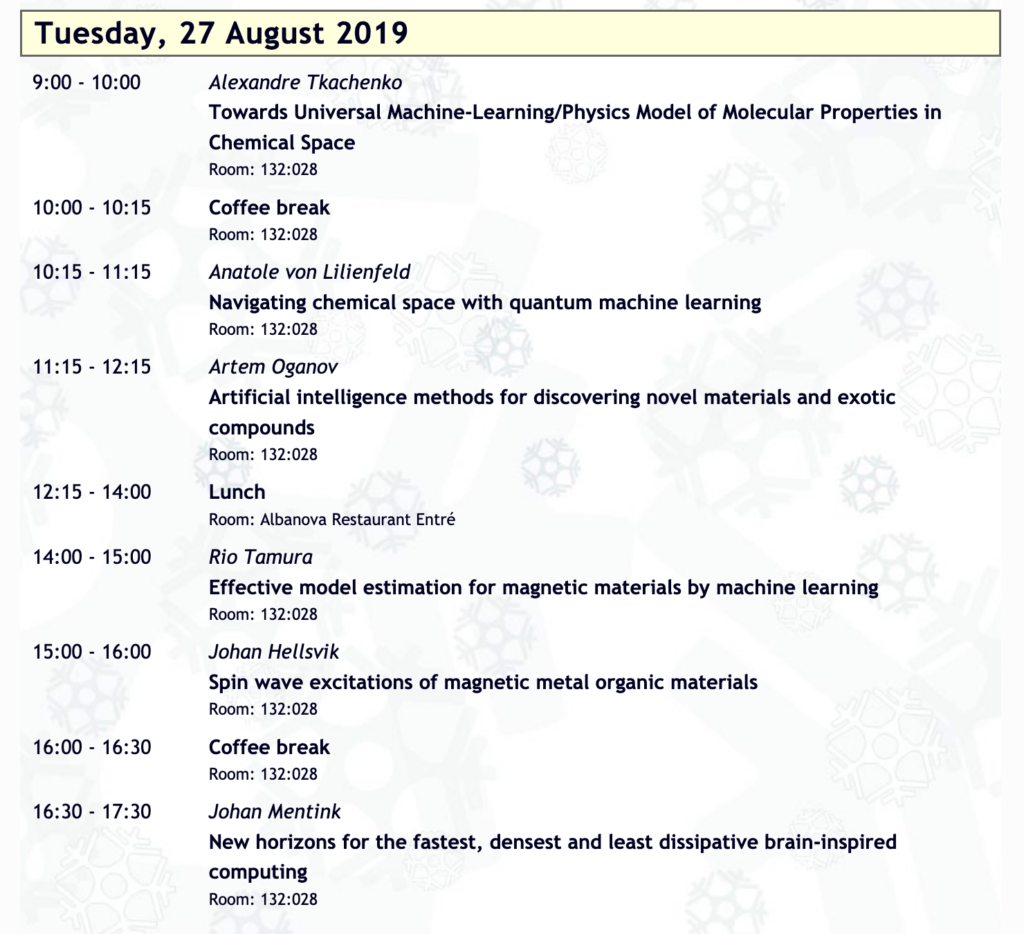
Day 2 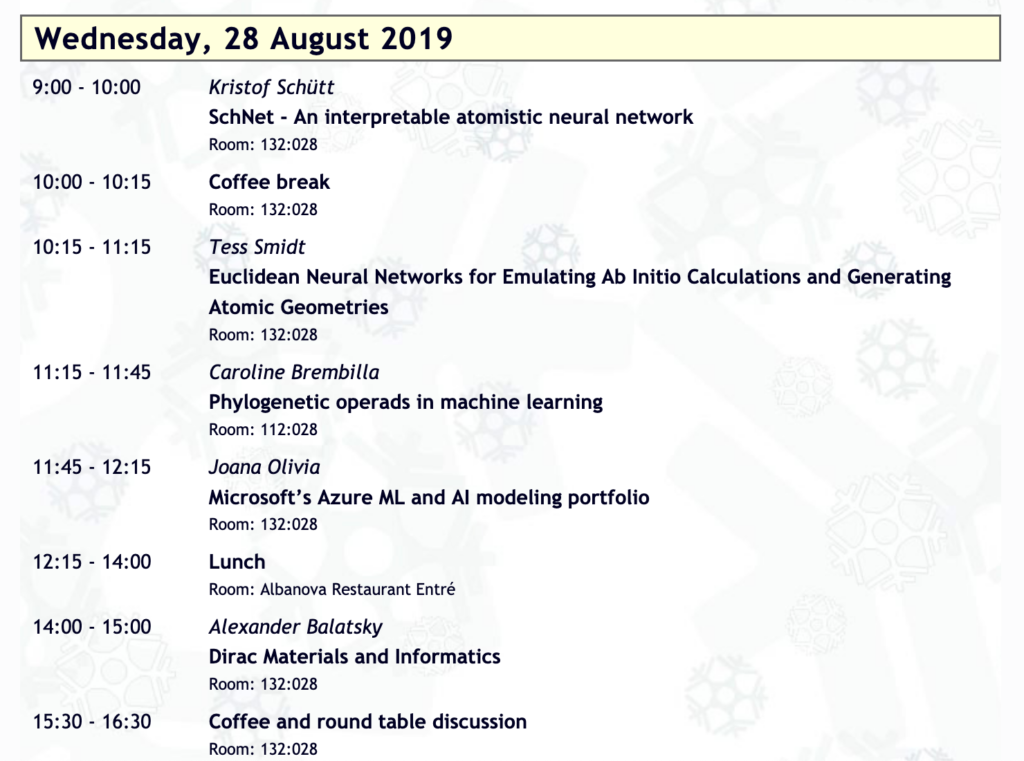
Day 3
Abstract Booklet
You can find a booklet containing the programme, speakers and abstracts of the talks here:
Photos
Presentation Files
You can access and download most of the slides used in the presentations below:



